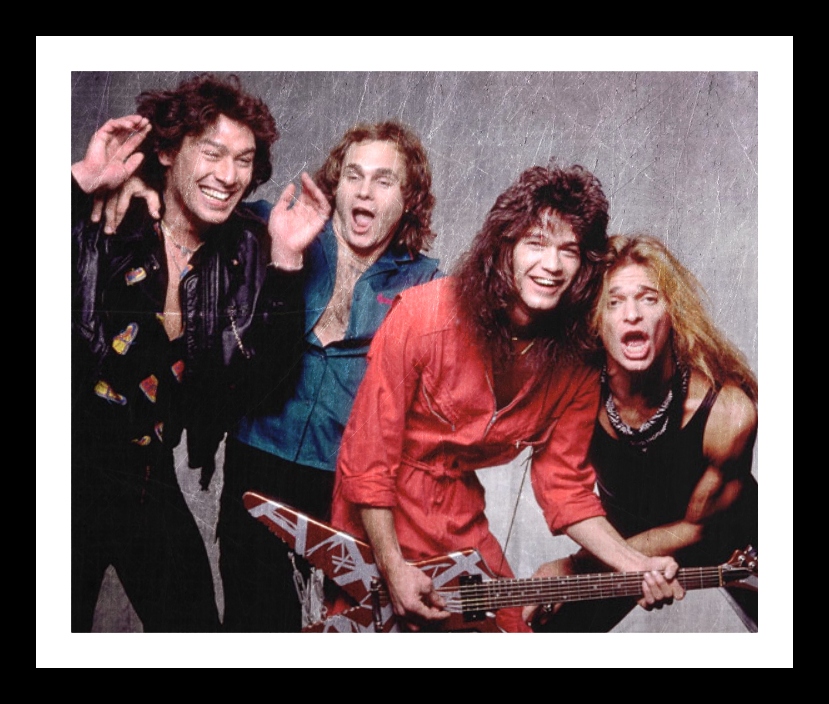
In 1980, Van Halen made one of the most musically diverse records of their career. Up to this point in the band’s history, the group was riding a wave of popularity built on mid-’70s era stadium rock coupled with Eddie Van Halen’s signature guitar work that inspired a generation of speed metal players. What sets Women and Children First apart from its predecessors is the variety of styles the band explored. And while the album didn’t perform as well as the first two in terms of record sales, it is arguably one of their best in terms of musicality, genre-bending, and as a showcase for the group’s growing talent as players. Even the much-maligned David Lee Roth sings with mature confidence that’s not quite there in the previous efforts. He’s playful, dirty, bluesy, over the top, and ever the rock-n-roll clown persona he embraced since he got in front of an audience. In short, Roth really completes what makes Van Halen…well, Van Halen. While Eddie, Alex, and Michael Anthony demonstred they were solid players from the get-go, on Women and Children First they become more confident and accomplished — almost as if they felt they didn’t have to prove themselves anymore. That’s clearly the case on “And The Cradle Will Rock,” and “Everybody Wants Some!!” (Make sure to always add that extra exclamation point). Both songs are an overture that this record is going to be a heavier album in terms of style and tone — and for the most part, it is.
1980 was a year in rock when things were starting to change a bit. Probably because of punk and new wave, hard rock adapted to the musical changes happening. A sector of the music-buying public seemed to like songs that were more aggressive, but not necessarily less melodic. It’s difficult to balance both, but Van Halen does succeed on this record. Case in point is “Fools” — a hard rocker that builds from some blues riffs — with Roth howling in the background. The song then transitions into a ferocious lead break for a bit and then settles into a kind of boogie riff that’s pure FM Rock. The Roth/Anthony harmonies are there, but it’s not really used as a hook. Mostly, harmonies act as an effective counterpoint to Eddie Van Halen’s wailing guitar. “Romeo Delight” makes the case that — even with the success of the first two records on the pop charts — Van Halen wasn’t selling out their hard rock roots. And you can hear that in “Tora! Tora!” and “Loss of Control” as well — where the infusion of pop elements into the songs is almost nil. These are definitely tunes for people who like music loud, aggressive, and balls to the wall. Speaking of which, “Loss of Control” is probably the closest speed metal song they recorded since “Chinatown.” There’s also more than a bit of a punk vibe lurking in there as Van Halen just goes for it without caring if the public at large likes what they are doing or not. It makes for a refreshing turn for the band.
Perhaps sensing too much of a good thing actually works against you, the band brings it back to bar blues in “Take Your Whiskey Home.” The next selection, “Could This Be Magic?” features Eddie on a slide guitar (which he reportedly never played before) and Roth on guitar, too. It’s a playful bluesy number that has a Django Reinhardt feel to it. And if you detect a female voice backing up Roth right before the chorus, you’re not wrong. It’s Nicolette Larson (best known for the 1978 Adult Contemporary hit, “Lotta Love”). The story goes that Van Halen producer Ted Templeman was also producing Larson’s debut album and called Eddie Van Halen to record a lead guitar break for her song, “Can’t Get Away From You.” Larson, it seems, returned the favor two years later by lending her voice to “Could This Be Magic?”
It’s the last track, “In a Simple Rhyme” where Van Halen really surprises listeners. With more than a nod to Led Zeppelin and Rush, we hear the boys tread into prog-rock territory. Not entirely, mind you. After all, this is Van Halen we’re talking about. But from the opening guitar riff, it gives off a vibe the lyrics are going to be somewhat mystical — maybe about knights in an epic battle or faeries. Nope. This is a standard VH song that Eddie used to describe as, “You know, boy meets girl, boy inserts penis.” Indeed, if you listen to the Cherokee Studio demo from 1974 (forward to 6:10), you can hear that it’s mostly a heavy rocker without the prog flourishes. Six years later, however, the song ideas really branched out to include some wonderful elements in the mix to spice things up. The galloping nature of the beat — and even Roth’s vocal phrasing at times — sounds a lot like “The Song Remains The Same” by a certain superstar band whose lead balloon would come crashing down in September 1980. Michael Anthony’s bass work is also very reminiscent of John Paul Jones and (somewhat) Geddy Lee. However, before “In a Simple Rhyme” becomes a complete homage to Zep, Eddie laces in a signature lead break toward the end to hammer home the point that this is a Van Halen song.
Overall, Women and Children First is a good showcase for Van Halen during a period where they moved away from pop elements and embraced hard rock with elan — something they would continue on Fair Warning. Recorded and mixed in less than a month (much like the previous records), the songs on Women and Children First don’t sound over-rehearsed and the production isn’t too thick with effects and other studio trickery. Instead, we get a (mostly) hard rock album of all original songs just as the band was poised to dominate decade of the ‘80s. But in order to do that, they had to throttle back on that full hard rock sound they were exploring and get back to those pop flourishes that sold Van Halen records in the first place.


Definitely the most under-rated VH album. Since you mentioned Zep as an influence, I always felt it was much like LZs third album. Very diverse and stretching the boundaries.
The original LP had a folded up poster of DLR as the record jacket. It was taken by some famous photographer but I can’t remember who.
According to the Wiki on the album, the photographer was Helmut Newton.